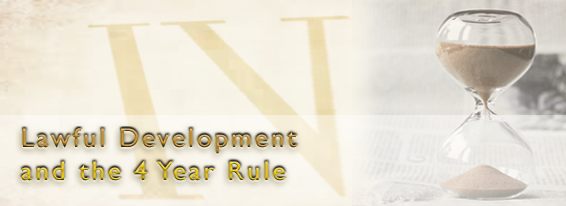Guide to Certificate of Lawful Development
Navigating the world of property development can sometimes feel like trying to decipher an ancient language. Amidst the jargon and paperwork, there's one beacon of clarity that stands out: the Certificate of Lawful Development.

Think of it as your golden ticket, a seal of approval that your dream project is on the right side of the law.
The Certificate of Lawful Development is a legal document you obtain from your local planning authority. It confirms that the development, alteration, or use of a building is lawful for planning purposes. It’s not about seeking permission; it’s about verifying that you don’t need permission in the first place.
The fear of unknowingly violating planning regulations can be paralyzing for homeowners and developers. The last thing anyone wants is to invest time, money, and heart into a project, only to face legal repercussions. This certificate alleviates that fear, offering peace of mind and a clear path forward. Steph Fanizza, Architectural Design & Team Manager
Tell us about your plan and we'll send you a free quote! It takes less than 60 seconds!
Understanding the Certificate of Lawful Development:
1. Why is it Important?
The Certificate of Lawful Development serves as concrete evidence that your building work or use of a property adheres to the relevant planning laws. It’s a safeguard against potential future disputes and can be invaluable if you decide to sell the property.
2. Types of Certificates:
Certificate of Lawfulness of Existing Use or Development (CLEUD): This certifies that an existing use of a property, or any operational development, is lawful at the time the certificate is issued.
Certificate of Lawfulness of Proposed Use or Development (CLOPUD): This confirms that a proposed use or development would be lawful if carried out.
3. The Application Process:
Gathering Evidence: Before applying, gather all necessary evidence that demonstrates the lawfulness of the development or use. This can include plans, past applications, and other relevant documents.
Submission: Submit your application to the local planning authority, along with the required fee and supporting evidence.
Assessment: The planning authority will assess your application based on the evidence provided and the relevant planning laws.
Decision: If the authority is satisfied, they’ll grant the certificate. If not, they’ll refuse, and you can appeal the decision if you wish.
4. Key Considerations:
Not a Guarantee: While the certificate confirms lawfulness, it doesn’t prevent the local authority from taking enforcement action if the use or development becomes unlawful in the future.
Duration: The certificate doesn’t expire. However, if the laws change, the certificate might not protect against enforcement action under the new regulations.
Selling Point: If you ever decide to sell your property, having this certificate can be a significant selling point. It assures potential buyers that there are no lurking legal issues related to development.
5. Common Misconceptions:
It’s Not Planning Permission: The certificate doesn’t grant permission but confirms that permission isn’t required. It’s a subtle but crucial distinction.
Automatic Approval: Some believe that if a development has existed for a certain number of years without enforcement action, it’s automatically lawful. This isn’t true; the certificate is still necessary to confirm lawfulness.
6. Tips for a Smooth Process:
Seek Expertise: If unsure about the process or the evidence required, consult with professionals or experts in planning law.
Be Thorough: Ensure that all documentation and evidence are thorough and accurate. Any discrepancies can lead to delays or refusals.
Stay Updated: Planning laws can change. Stay updated on any local or national changes that might affect the lawfulness of your development.
Conclusion:
The Certificate of Lawful Development is more than just a piece of paper; it’s a testament to due diligence, foresight, and respect for the law. In the intricate dance of property development, it’s a step that ensures you’re always on the right foot, allowing you to move forward with confidence and peace of mind. Whether you’re a homeowner looking to extend, a developer planning a new project, or a property enthusiast, understanding this certificate is invaluable. It’s the clarity amidst the chaos, the assurance amidst the uncertainty.












